Welcome to Jiangsu DZX Factory.
Email:dlx@dlx-alloy.com Mobile/Whatsapp:+86 199 0611 9641
Professional manufacturer of welding wires and spraying wires,over 22 years.
Welcome to Jiangsu DZX Factory.
Email:dlx@dlx-alloy.com Mobile/Whatsapp:+86 199 0611 9641
Professional manufacturer of welding wires and spraying wires,over 22 years.
Contact:Jason
Whatsapp:+8619906119641
Email:dlx@dlx-alloy.com
Add:NO.32 West Taihu Road, Xinbei District, Changzhou, Jiangsu,China
Nickel Welding Wire
Product Details
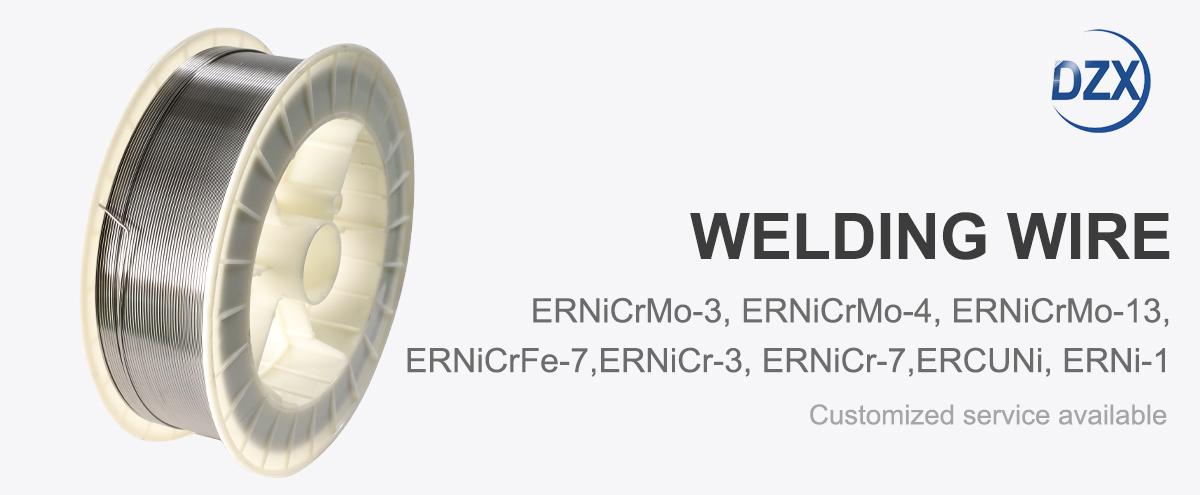
Our ERNiCrFe-2 Inconel 718 welding wire is a top-tier solution for aerospace applications where strength, heat resistance, and durability are non-negotiable. This nickel-chromium-iron alloy wire is designed for Gas Tungsten Arc Welding (GTAW) and Gas Metal Arc Welding (GMAW), delivering welds that can handle extreme temperatures and mechanical stress. With a carefully balanced composition, including niobium and molybdenum, it offers exceptional resistance to creep, fatigue, and oxidation, making it ideal for high-performance components like jet engines and turbine blades. Compliant with AWS A5.14 standards, this wire is optimized for welding Inconel 718 and similar alloys, ensuring strong, reliable joints.
The low carbon content reduces the risk of cracking, while its high alloy content provides excellent corrosion resistance, even in harsh environments. Whether you’re working on aerospace structures, rocket components, or high-temperature industrial systems, our ERNiCrFe-2 Inconel 718 wire delivers clean, precise welds that meet the toughest industry standards. It’s engineered for weldability, consistency, and performance, making it a go-to choice for critical aerospace projects.
For more other size details, pls directly contact us
The aerospace industry is soaring, with global demand for commercial and military aircraft projected to grow steadily through 2035. This growth is driven by increasing air travel, defense modernization, and the push for fuel-efficient, lightweight aircraft. High-strength materials like Inconel 718 are critical to meeting these demands, offering the durability and heat resistance needed for components like turbine blades, engine casings, and exhaust systems. The rise of space exploration, including commercial spaceflight and satellite production, is also boosting the need for advanced welding materials that can withstand extreme conditions.
Key trends include a focus on lightweight materials to improve fuel efficiency and reduce emissions, aligning with global sustainability goals. Additive manufacturing and advanced welding technologies, such as automated TIG and laser welding, are gaining traction, requiring wires that deliver precision and consistency. The industry is also seeing increased investment in high-temperature alloys for next-generation engines, which must operate at higher efficiencies and temperatures. Our ERNiCrFe-2 Inconel 718 wire is perfectly suited to these trends, offering the strength and reliability needed for cutting-edge aerospace applications.
Another driver is the emphasis on durability and lifecycle cost reduction. Aerospace manufacturers are prioritizing materials that minimize maintenance and extend component lifespans, especially for high-stakes applications like jet engines and spacecraft. Our welding wire supports these goals by delivering welds that resist creep, fatigue, and corrosion, ensuring long-term performance in demanding environments.
| AWS Classification | Applications |
| ERNiCr-3 | Used for welding 600, 601, and 800 alloys and dissimilar welding between stainless steel and carbon steel |
| ERNiCrFe-7 | Suitable for welding nickel-chromium-iron alloys under ASTM B163, B166, B167, and B168 standards |
| ERNiCrFe-6 | Designed for welding steel to nickel-chromium-iron alloys, as well as stainless steel to nickel-based alloys |
| ERNiCrCoMo-1 | Used for welding nickel-chromium-cobalt-molybdenum alloys and various high-temperature alloys |
| ERNiCrMo-3 | Suitable for nickel alloy, carbon steel, stainless steel, and low alloy steel welding, primarily used for 625, 601, 802 alloys, and 9% nickel alloys |
| ERNi-CI | Used for welding commercially pure nickel, malleable cast iron, and gray cast iron |
| ERCuNi | Suitable for welding 70/30, 80/20, and 90/10 copper-nickel alloys |
| ERNiCu-7 | Used for welding nickel-copper alloys such as B127, B163, B164, and B165 |
| ERNi-1 | Designed for welding pure nickel castings and forgings, including those under ASTM B160, B161, B162, and B163 standards |
| ERNiFeMn-CI | Suitable for welding nodular cast iron, ductile iron, malleable cast iron, and gray cast iron, as well as their dissimilar welding to stainless steel, carbon steel, low alloy steel, and various nickel alloys |
| ERNiCrMo-4 | Used for welding nickel-chromium-molybdenum alloys, or for welding nickel-chromium-molybdenum alloys to steel and other nickel-based alloys |
| ERNiCrMo-11 | uitable for self-welding nickel-chromium-molybdenum alloys, dissimilar welding with steel and other nickel alloys, and also for cladding applications |
| ERNiCrMo-13 | Used for welding low-carbon nickel-chromium-molybdenum alloys |
| ENiCrMo-3 | Designed for welding nickel-chromium-molybdenum alloys, including 625, 800, 801, 825, and 600 |
| ENiCrFe-3 | Used for welding nickel-chromium-iron alloys and for dissimilar welding with carbon steel |
| ENiCrFe-2 | Suitable for welding austenitic steel, ferritic steel, and high-nickel alloys, also used for 9% nickel alloy welding |
| ENiCu-7 | Primarily used for welding nickel-copper alloys and their dissimilar welding with steel |
| ENiCrFe-7 | Ideal for welding 690 (UNS N06690) nickel-chromium-iron alloys |
| ENiCrMo-4 | Designed for C-276 alloy welding and most nickel-based alloys |
| ENiCrCoMo-1 | Suitable for welding nickel-chromium-cobalt-molybdenum alloys and various high-temperature alloys |
| ERCuNi | Used for welding forged or cast 70/30, 80/20, and 90/10 copper-nickel alloys |
| ENiCrMo-13 | Used for welding low-carbon nickel-chromium-molybdenum alloys |
| ENiCrMo-11 | Used for welding low-carbon nickel-chromium-molybdenum alloys |
| Welding Wire Type | Density (g/cm³) | Melting Point (°C) | Electrical Conductivity (% IACS) | Coefficient of Thermal Expansion (10⁻⁶/°C) | Tensile Strength (MPa) | Yield Strength (MPa) | Elongation at Break (%) |
| Carbon Steel Welding Wire | 7.85 | 1450 | 8-10 | 11.8 | 400-550 | 300-400 | 20-25 |
| Stainless Steel Welding Wire | 7.9 | 1350-1450 | 2-5 | 16-17 | 550-650 | 300-400 | 30-40 |
| Aluminum Welding Wire | 2.7 | 600-660 | >60 | 23.1 | 150-200 | 75-100 | >20 |
| Nickel Alloy Welding Wire | 8.4 | 1350-1400 | 1-2 | 13.1 | 600-800 | 400-600 | 30-40 |
| Welding Rod Type | Coating | Electrical Resistivity (10⁻⁶ Ω·cm) | Hardness (HV) | Heat Resistance (°C) | Tensile Strength (MPa) | Yield Strength (MPa) | Elongation at Break (%) |
| Carbon Steel Welding Rod | Acid coated, alkaline coated | 10-15 | 150-200 | < 450 | 400-550 | 300-400 | 20-25 |
| Stainless Steel Welding Rod | Acid coated, alkaline coated | 60-80 | 200-400 | < 800 | 550-750 | 350-450 | 25-35 |
| Cast Iron Welding Rod | Alkaline coated | 90-120 | 250-450 | 300-600 | 300-500 | 150-300 | 10-20 |
| Nickel Alloy Welding Rod | Alkaline coated | 80-100 | 200-300 | < 1200 | 700-900 | 450-650 | 20-35 |
For more other size details, pls directly contact us
Our ERNiCrFe-2 Inconel 718 welding wire is a powerhouse for aerospace and related high-performance industries. Here’s where it excels:
Aerospace: Used for welding jet engine components, turbine blades, combustors, and exhaust systems, where high-temperature strength and fatigue resistance are critical.
Space Exploration: Ideal for rocket engines, thrusters, and spacecraft components exposed to extreme thermal and mechanical stress.
Power Generation: Supports gas turbine components and high-temperature boiler systems in fossil fuel and nuclear power plants.
Oil and Gas: Applied in high-temperature, high-pressure equipment like downhole tools and refinery components.
Defense: Used in military aircraft and missile systems, ensuring durability under extreme conditions.
Automotive: Suitable for high-performance engine components in racing and luxury vehicles, where strength and heat resistance are key.
Industrial Gas Turbines: Ensures reliable welds in turbines exposed to high temperatures and corrosive gases.
Additive Manufacturing: Supports advanced welding techniques for creating complex aerospace parts with precision.
Its ability to weld Inconel 718 to other nickel-based alloys or dissimilar metals, like stainless steel, makes it a versatile choice for complex projects. Whether you’re building a jet engine or repairing a turbine, our ERNiCrFe-2 wire delivers consistent, high-quality results.
When compared to a typical competitor in the nickel alloy welding wire market, our ERNiCrFe-2 Inconel 718 wire stands out for its superior performance and reliability. Here’s how it stacks up:
|
Parameter |
Our ERNiCrFe-2 Inconel 718 |
Competitor’s Product |
|---|---|---|
|
High-Temperature Strength |
Exceptional up to 1800°F (982°C), resists creep and fatigue |
Reliable up to 1700°F (927°C), less creep resistance |
|
Corrosion Resistance |
Outstanding resistance to oxidation and corrosive gases |
Good resistance, but less effective in high-oxidation environments |
|
Weldability |
Smooth feeding, minimal defects, excellent arc stability |
Decent weldability, occasional slag or spatter issues |
|
Chemical Composition |
Optimized niobium and molybdenum for strength and stability |
Higher carbon, increasing risk of cracking |
|
Versatility |
Suitable for GTAW, GMAW, and dissimilar metal welding |
Limited to specific welding processes |
|
Fatigue Resistance |
High resistance to fatigue in cyclic loading conditions |
Moderate fatigue resistance |
|
Purity and Cleanliness |
High-purity wire with minimal impurities |
Standard purity, occasional weld imperfections |
|
Certifications |
Fully compliant with AWS A5.14, AMS, and ASTM standards |
Meets AWS A5.14, limited AMS compliance |
Our wire’s optimized composition, with precise niobium and molybdenum levels, ensures superior creep and fatigue resistance, critical for aerospace applications. Its high purity and smooth weldability reduce defects, saving time and costs during production. The ability to handle high temperatures and cyclic loading makes it a standout for jet engines and spacecraft components.
Our ERNiCrFe-2 Inconel 718 welding wire is the result of years of expertise and cutting-edge manufacturing. We’ve perfected our process to deliver a wire with consistent chemistry and mechanical properties, ensuring reliable welds every time. Its high purity minimizes imperfections, giving you cleaner, stronger joints that perform under the extreme conditions of aerospace applications.
Versatility is a major strength. Our wire works seamlessly with GTAW and GMAW processes and handles dissimilar metal welding with ease, making it ideal for complex aerospace projects. Its excellent arc stability and smooth feeding boost productivity, reducing downtime and rework on the shop floor.
We back our product with top-notch customer support. From detailed welding parameters to technical guidance, we’re here to help you optimize your processes for the best results. Our global supply chain ensures fast, reliable delivery, so you’re never waiting for materials. Sustainability is also a priority—our wire’s durability extends component lifespans, reducing maintenance costs and environmental impact. Whether you’re welding a turbine blade or a rocket thruster, our ERNiCrFe-2 Inconel 718 wire delivers the performance you need.
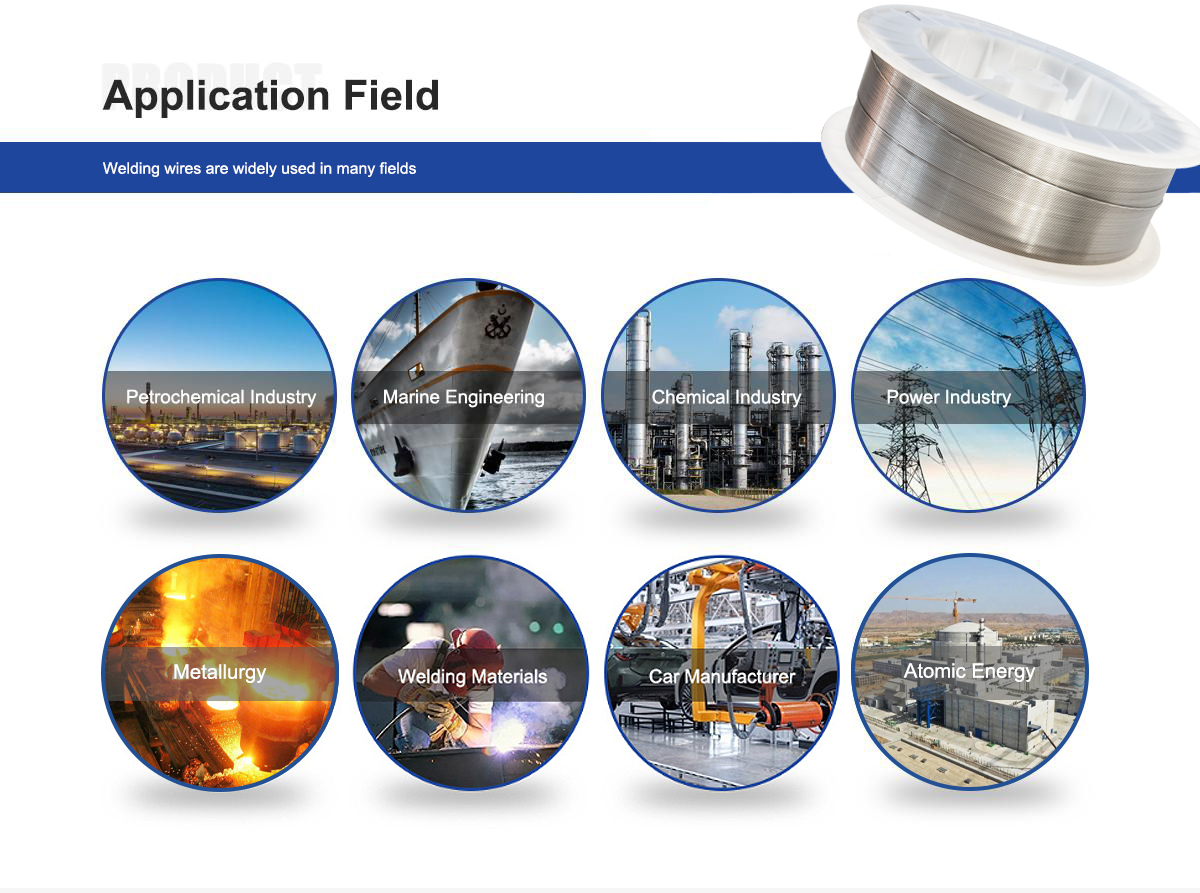
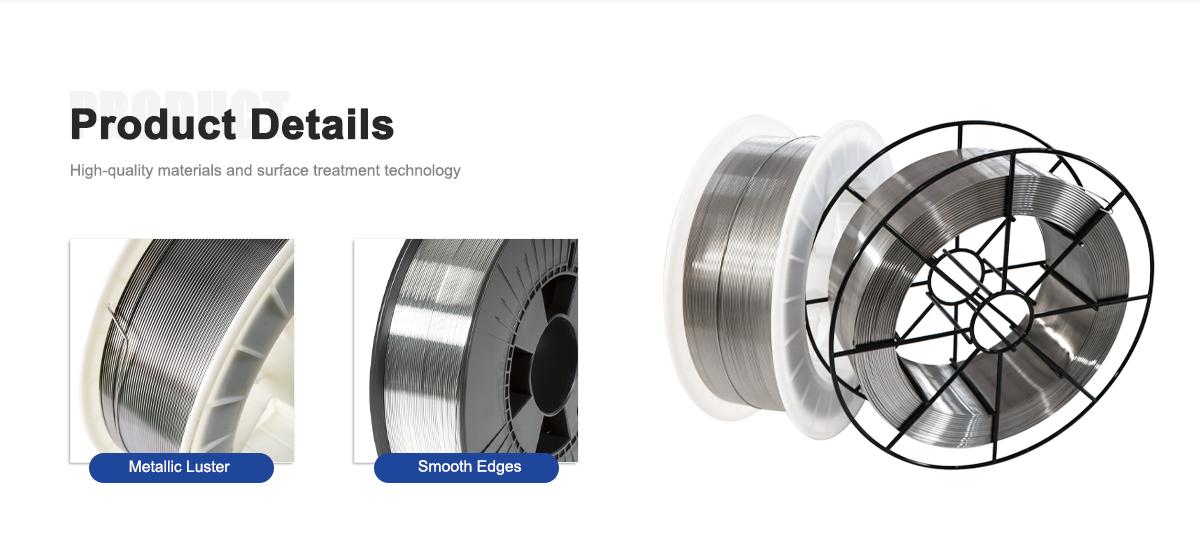
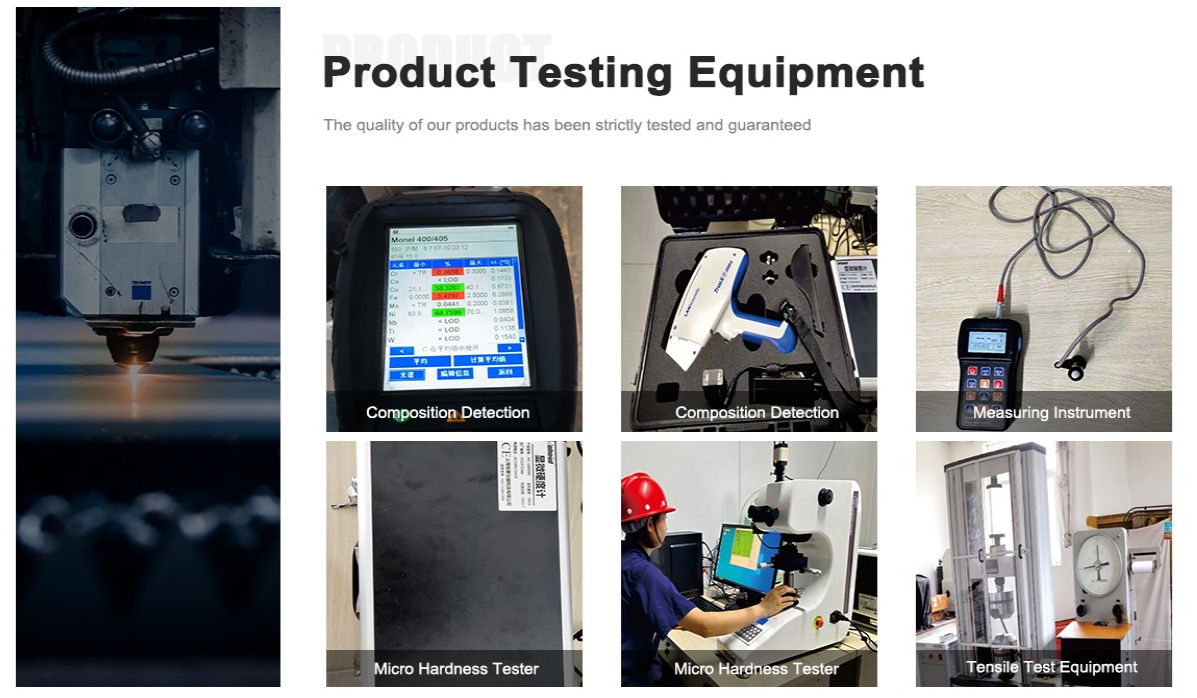
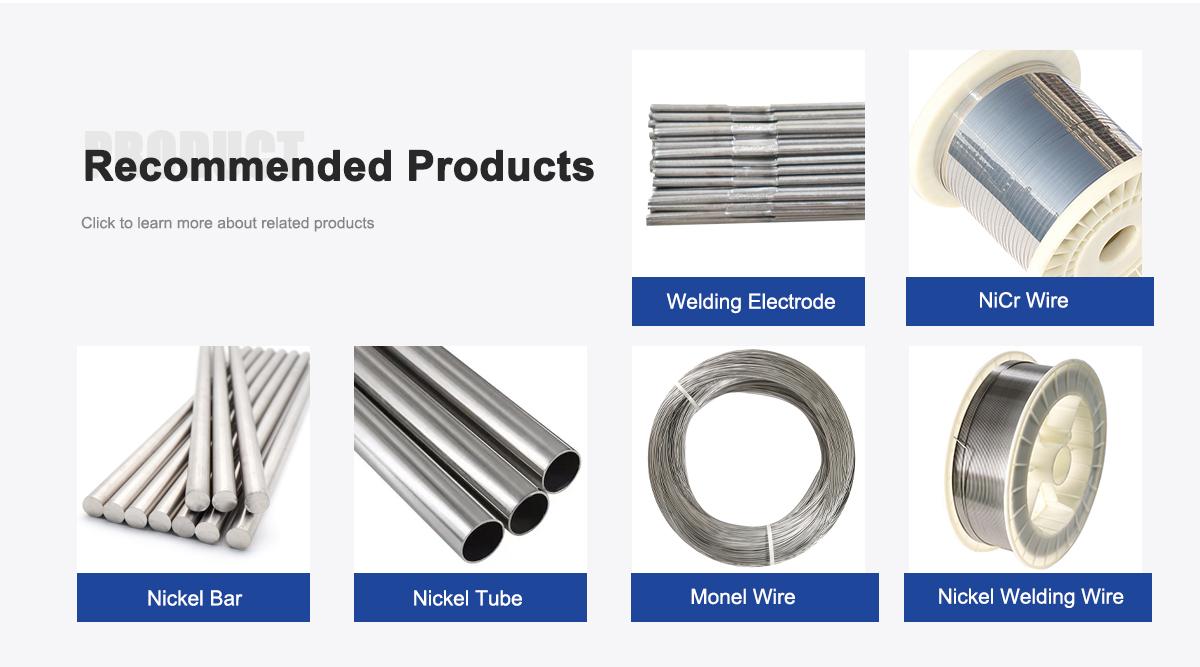
About Us:
Our 12,000㎡ factory is equipped with complete capabilities for research, production, testing, and packaging. We strictly adhere to ISO 9001 standards in our production processes, with an annual output of 1,200 tons. This ensures that we meet both quantity and quality demands. Furthermore, all products undergo rigorous simulated environment testing including high temperature, high pressure, and corrosion tests before being dispatched, ensuring they meet customer specifications. We also provide chemical analysis reports for every FeCrAl alloy, NiCr alloy, and other products purchased.
For all our clients, we offer timely and multilingual after-sales support and technical consulting, helping you resolve any issues swiftly and efficiently.
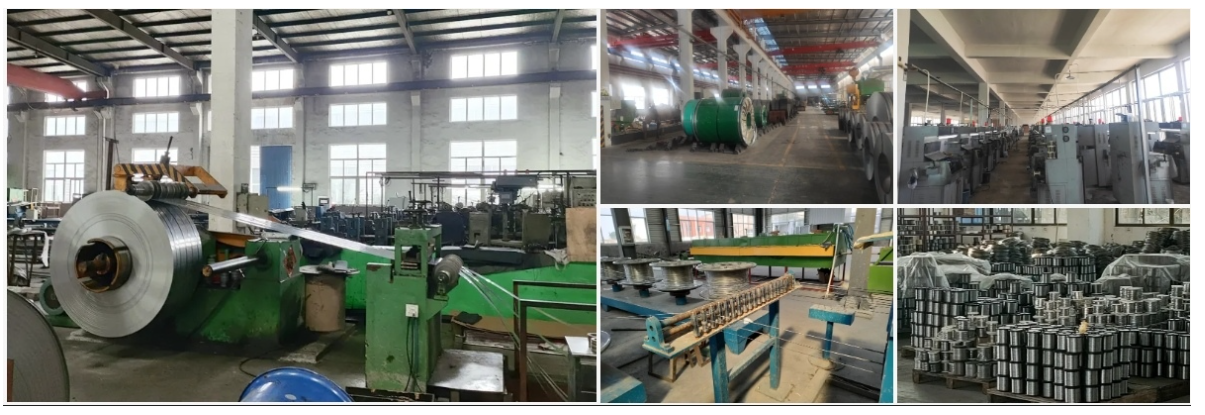
Client Visits
Building Stronger Partnerships
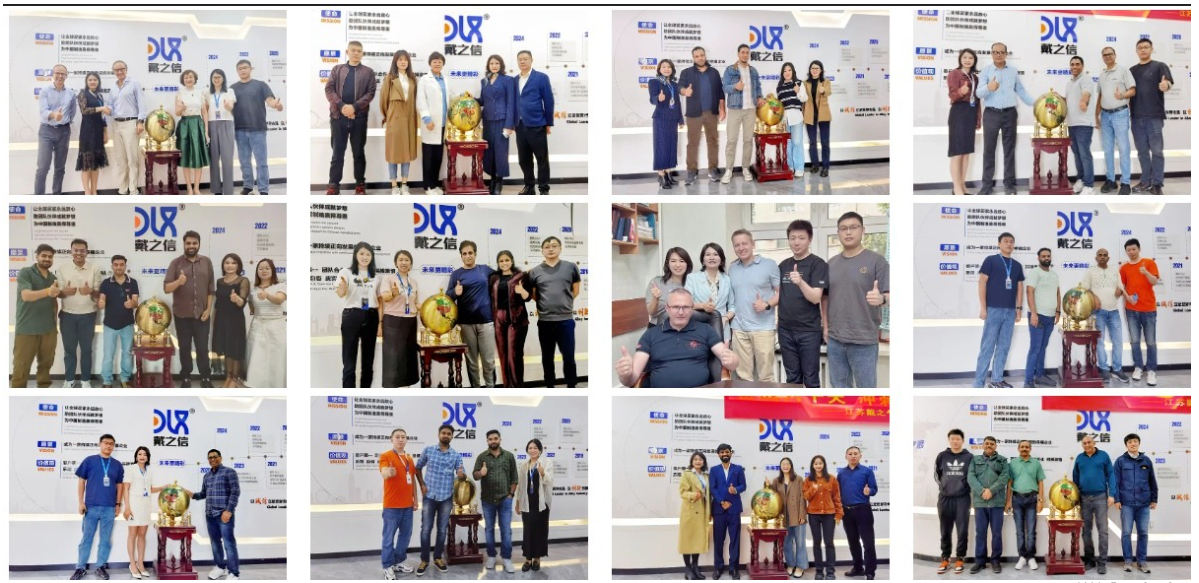
We support all kinds of testing:
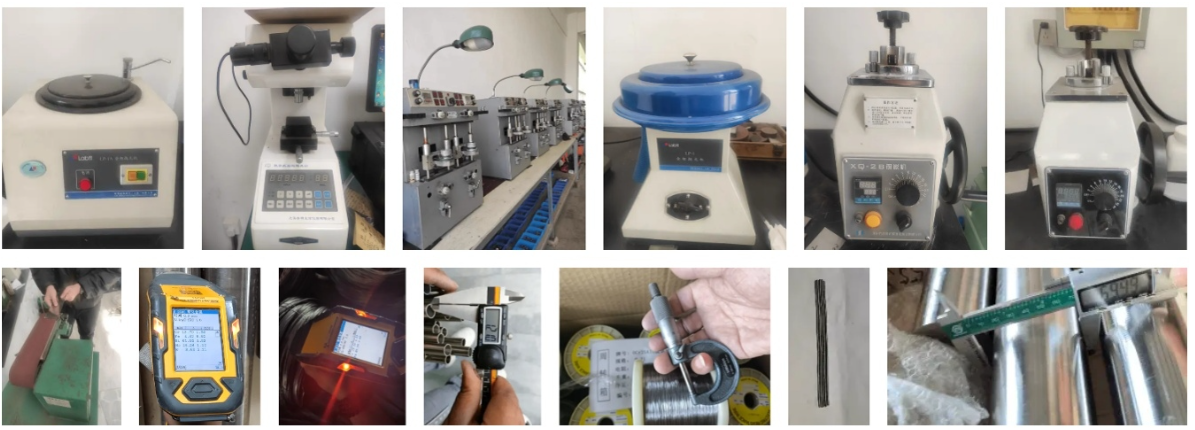

What is ERNiCrFe-2 Inconel 718 welding wire used for?
It’s used for welding high-strength nickel alloys in aerospace, space exploration, and power generation, offering superior heat and fatigue resistance.
What makes ERNiCrFe-2 different from other welding wires?
Its optimized niobium and molybdenum content ensures exceptional creep, fatigue, and corrosion resistance for high-temperature applications.
Can it weld dissimilar metals?
Yes, it’s great for joining Inconel 718 to other nickel alloys or stainless steel.
Which industries benefit from ERNiCrFe-2?
Aerospace, space exploration, power generation, oil and gas, defense, and automotive industries rely on its performance.
What welding processes is it compatible with?
It’s optimized for GTAW and GMAW, but also supports other arc welding processes.
How does it perform in high-temperature environments?
It maintains strength and resists creep up to 1800°F (982°C), ideal for jet engines and turbines.
Is it resistant to fatigue and oxidation?
Yes, its composition ensures excellent resistance to fatigue and oxidation in cyclic and high-temperature conditions.
Does it require special welding techniques?
No, but using our recommended parameters ensures optimal weld quality and minimal defects.
Our ERNiCrFe-2 Inconel 718 welding wire is built for the toughest aerospace challenges. Its exceptional high-temperature strength, fatigue resistance, and corrosion resistance make it a top choice for jet engines, spacecraft, and turbines. With clean, reliable welds and unmatched versatility, it helps you tackle complex projects with confidence. Backed by our commitment to quality, innovation, and customer support, our wire delivers the performance you need to stay ahead in high-stakes industries. Trust us to provide the welding solution that powers your next big project.